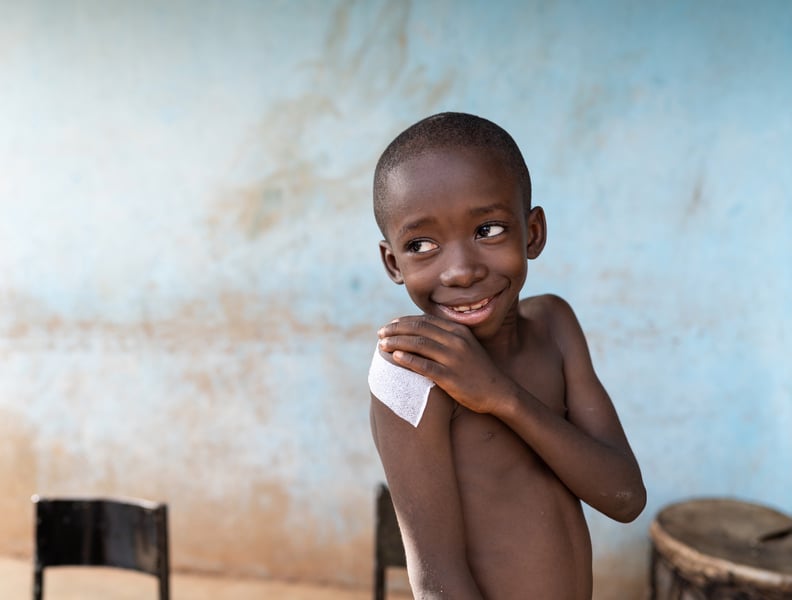Get Healthy!

- Cara Murez
- Posted April 21, 2023
Pandemic Saw Rise in Mistrust of Childhood Vaccines Worldwide
While overall support for childhood vaccines remains strong, a new UNICEF report documents a significant decline in the public's faith in the importance of these vaccines.
Confidence in childhood immunizations dropped by up to 44 percentage points in some countries during the pandemic, according to the report.
Meanwhile, 67 million children missed one or more of their vaccines over three years because of pandemic-related strains on health systems, scarce resources, conflict, fragility and decreased confidence.
"At the height of the pandemic, scientists rapidly developed vaccines that saved countless lives. But despite this historic achievement, fear and disinformation about all types of vaccines circulated as widely as the virus itself,"said UNICEF Executive Director Catherine Russell.
"This data is a worrying warning signal. We cannot allow confidence in routine immunizations to become another victim of the pandemic," Russell said in a UNICEF news release. "Otherwise, the next wave of deaths could be of more children with measles, diphtheria or other preventable diseases."
Perception about the importance of vaccines for children declined by more than one-third in the Republic of Korea, Papua New Guinea, Ghana, Senegal and Japan, according to the "State of the World's Children 2023: For Every Child, Vaccination."
Only in China, India and Mexico did the perception about the importance of vaccines continue at the same level or increase.
People under 35 and women were more likely to report less confidence about vaccines for children after the pandemic began.
It's not clear whether this is temporary or part of a long-term trend.
Support for vaccines remains relatively strong, with more than 80% of respondents in nearly half of the countries still perceiving vaccines as important for children.
Yet, the threat of vaccine hesitancy may be growing because of uncertainty about the response to the pandemic, growing access to misleading information, declining trust in expertise, and political polarization, the report noted.
This happens amid the largest backslide in childhood immunization in 30 years because of pandemic issues including health worker shortages and stay-at-home measures, according to UNICEF.
Vaccination coverage levels decreased in 112 countries between 2019 and 2021.
Those born just before or during the pandemic are now passing the age when they would normally be vaccinated. There is an urgent need to get them caught up, according to UNICEF.
Here are some real-world examples of the impact: The number of children paralyzed by polio was up 16% year-to-year in 2022, while measles cases doubled.
Inequities are a part of the picture, with too many children in marginalized communities unable to access or afford vaccines, according to the report.
About 48 million of the 67 million kids who missed routine vaccinations between 2019 and 2021 didn't receive a single routine vaccine. At the end of 2021, India and Nigeria had the largest numbers of these zero-dose children. Increases in the numbers of zero-dose children were especially notable in Myanmar and the Philippines, according to the report.
The children missing the vaccines live in the poorest, most remote and marginalized communities, according to UNICEF.
Data from the International Center for Equity in Health showed that in the poorest households 1 in 5 children are zero-dose, while in the wealthiest households only 1 in 20 have had no vaccines.
The challenges are greatest in low- and middle-income countries, where about 1 in 10 children in urban areas are zero-dose and 1 in 6 are zero-dose in rural areas. Almost no gap exists between rural and urban children in upper middle-income countries.
"Immunizations have saved millions of lives and protected communities from deadly disease outbreaks,"Russell said. "With resources still available from the COVID-19 vaccination drive, now is the time to redirect those funds to strengthen immunization services and invest in sustainable systems for every child."
More information
The U.S. Centers for Disease Control and Prevention has more on childhood vaccines.
SOURCE: UNICEF, news release, April 20, 2023







